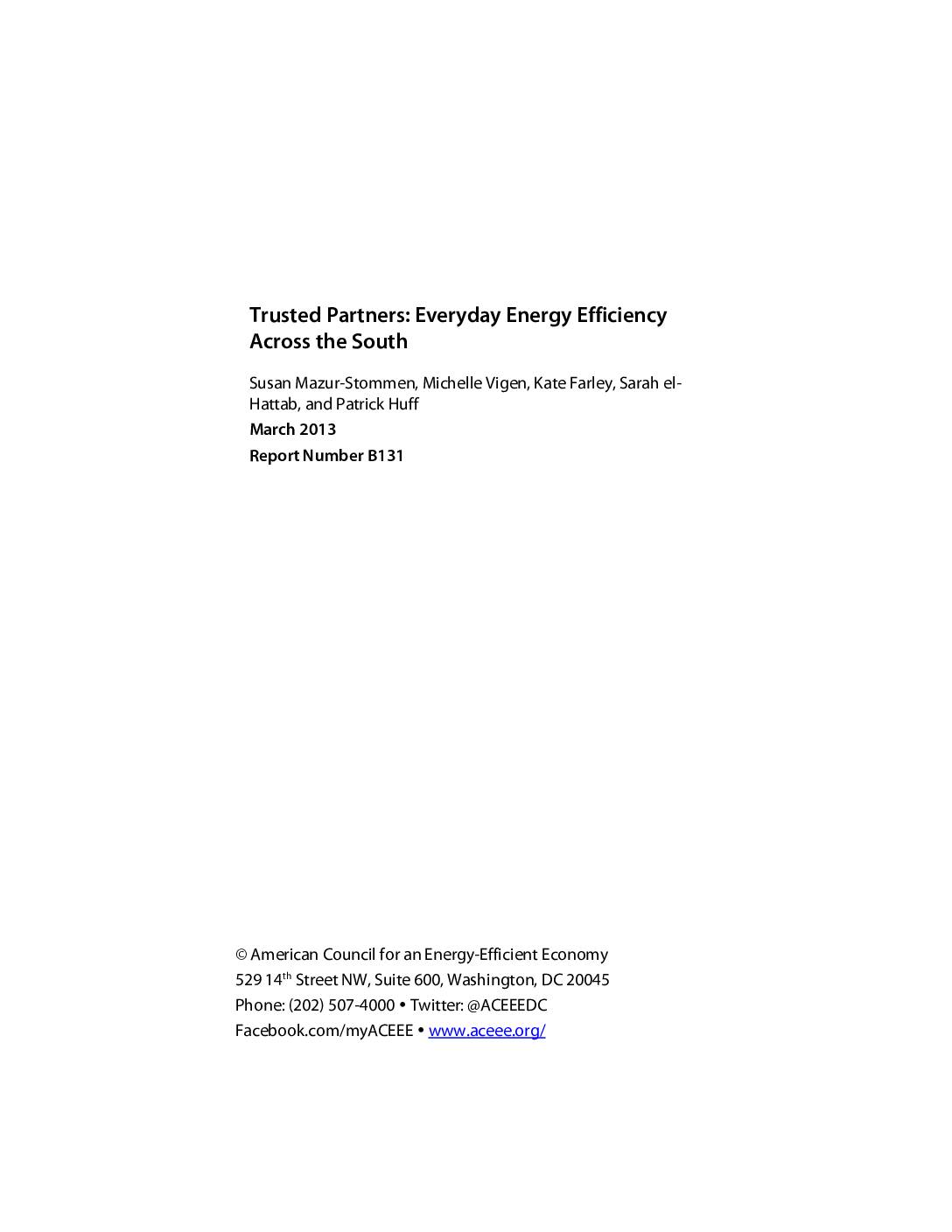The Deep South Ethnographic Project at the American Council for an Energy-Efficient Economy (ACEEE) has been a multi-sited, qualitative research project looking into everyday energy practices across the sectors of buildings, agriculture, and transportation.
The Behavior and Human Dimensions Program staff at ACEEE used a case-study approach to tackle specific suites of questions in locales distributed across Alabama, Georgia, Louisiana, and Mississippi, which are all states with nascent or emergent energy efficiency program adoption. One of our overarching questions that this project sought to answer is “are end-users of energy in the Southeastern states interested in energy efficiency?”
This report takes the reader through the genesis of our research interest in the region. We describe the demographics of our informants and responses to a set of questions about energy usage, bills, and money. At the heart of the report are the individual case studies from five different sites, each with their own research questions but sharing a common methodology. Thus, they each stand alone but collectively contribute to a more holistic understanding of the region. We believe that the key to increasing energy efficiency in the South lies in taking cultural norms into consideration and working with local worldviews and institutions. We discuss how “Southern” identity is relevant to the ways in which people use energy.
Share this

Sectors: Buildings, Cross cutting, Renewables
Country / Region: Northern America, United States
Tags: agriculture, building types, corporate reporting, energy, energy efficiency, projects, research programmes, sustainable livelihoods approachesKnowledge Object: Publication / Report
Published by: ACEEE
Publishing year: 2013
Author: Susan Mazur-Stommen, Michelle Vigen, Kate Farley
